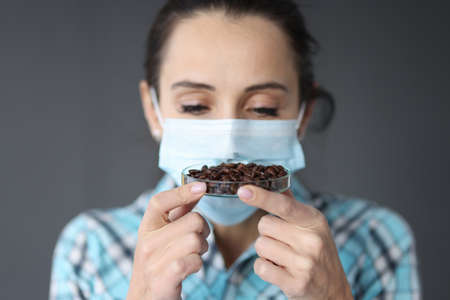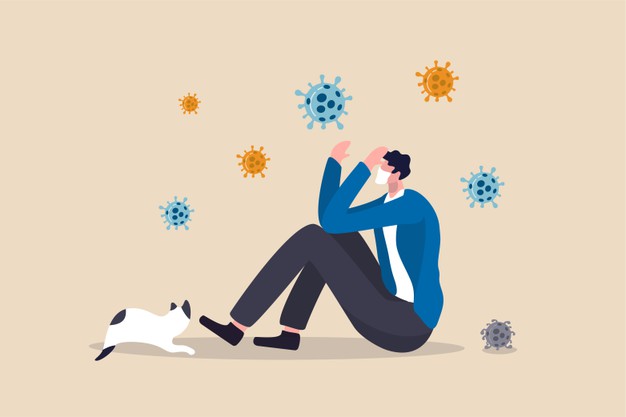
Discovery of effective treatment for COVID-19 Infection
June 16, 2020
CONVALESCENT PLASMA THERAPY AGAINST COVID-19
June 24, 2020In these challenging times when the world is facing COVID-19 pandemic one of the major concerns for health officials is how to provide guidelines for women who are planning pregnancy, are pregnant, or who have delivered baby during this pandemic.
Considerable data on COVID-19 is available, but much remains to be learned about its effects on pregnant women and newborn.
Currently available data is insufficient to assess whether pregnant women are more susceptible to corona virus infection.
Data from China showed that pregnant women with corona virus infection do not appear to be at increased risk of severe disease compared with general population.
Studies from China consisting primarily of women with third trimester infection have shown that clinical findings in pregnant women are similar to those seen in general population.
Whereas a small Swedish study reported that pregnant women and post-partum women[women who have just delivered baby] with corona virus infection were five times more likely to be admitted to intensive care unit compared when with non-pregnant women.
Similar to China, studies from United States show that the proportion of the pregnant women with severe disease was similar to that described in non-pregnant women with COVID-19.
More information is needed about the effect of pregnancy and comorbidities [diseases already present] to understand how they affect clinical outcomes in COVID-19 patients.
The current information shows that each country’s risk of severity of COVID-19 infection might differ from other countries depending upon geographical risk factors and comorbidities among pregnant women.
The effects of COVID-19 during pregnancy on neonate are not well understood as well.
Available data from China shows that nearly all infections reported were during second or third trimester. So it is unclear whether first trimester infection with corona virus could cause birth defects or pregnancy loss. It was also reported that some of the pregnant women with infection have delivered babies before term i.e. before 36 weeks gestational age and they have delivered as low- birth- weight babies.
It is unclear at present how transmission of the infection occurs, could it be transferred from infected mother to fetus during pregnancy or at birth or within first few days of life.
Whether transmission can occur through breast feeding is also not clear. Therefore there is no clear guidance at present on the matter.
Given the benefits of breast milk, when feasible, breast milk should be fed to infants regardless of maternal COVID-19 status. Since breast milk provides valuable immune proteins to newly born baby that offers protection from the environmental elements.
Given the limited data, recommendations for caring of women who are planning a pregnancy, are pregnant or have given birth during the COVID-19 pandemic are based on experts’ opinion, for which health data is limited.
Based on the limited data, there does not seem to be a compelling reason to recommend delaying pregnancy.
For women who are pregnant the primary recommendation is to avoid becoming infected with corona virus infection through practicing hygiene [frequent hand washing, wearing gloves at public places etc.] and social distancing measures [avoid going to crowded places, if required wearing masks].
Early recognition of infection in pregnant patient admitted to a labor and delivery unit is necessary so that appropriate infection control practices can be instituted by health care facilities.
Some women with corona virus infection might be without any of the symptoms, therefore health care facilities may consider polymerase chain reaction testing for SARS-COV 2 at the time of admission. [This laboratory test detects presence of virus in patient’s secretions].
Several professional organizations have developed some recommendations and guidelines for the care of pregnant women with known corona virus disease. Some of these are:
On presentation a mask should be placed on woman and she should be isolated in a single-patient room with door closed.
Clinical care of the pregnant women with COVID-19 should be based on illness severity.
Corticosteroids use in COVID-19 patients should be carefully adjusted as they could worsen their condition. [ As pregnant women with COVID-19 are at risk of preterm labor i.e. they could deliver the baby before 36 weeks gestational age, corticosteroids are drugs given to pregnant women in preterm labor for organ maturation of fetus so it could survive outside mother’s womb].
Given the risk of maternal respiratory depression, consideration should be given to limiting the use of magnesium sulphate. [Magnesium sulphate is a chemical which is used to control seizure in pregnant women].
Early epidural analgesia (drugs given through spinal cord for pain control during labor and they only affect the lower half of the body) should be considered to reduce the risk associated with general anesthesia in setting of urgent cesarean section.
Decision regarding timing and mode of delivery should be based on standard fetal and maternal indications.
Decision regarding temporary separation of infected mothers from their newborns should be made in a case-to-case basis. Mothers who intend to breast feed should practice hand and breast hygiene and express their milk. Expressed milk can be fed to new born by a healthy care giver.
If separation is not chosen, mothers who chose to feed at breast should wear face mask and practice hand and breast hygiene before each feeding.
Babies born to mothers with confirmed corona virus infection at the time of delivery should be considered to have suspected corona virus infection and should be isolated from healthy newborns. They should be tested 24 hours after birth for SARS-COV-2 and if negative, test should be repeated again at approximately 48 hours.
[ Proffessoinal Organization Resources: American Academy of Pediatrics (AAP), American College of Obstetricians and Gynecologists (ACOG),Centre for Disease Control and Prevention (CDC), Society for Maternal Health Medicine (SMFM) and Society for Obstetrics Anesthesia and Perinatology (SOAP).]
REFERENCE
Author: Sonja A. Rasmussen, MD, MS
Denise J. Jamieson, MD, MPH
Title of Article: Caring For Women Who are Planning a Pregnancy, Pregnant, or Postpartum During the COVID-19 Pandemic.[ Published online June 5, 2020 on JAMA].
JAMA. Published online June 5, 2020.doi:10.1001/Jama.2020.8883







